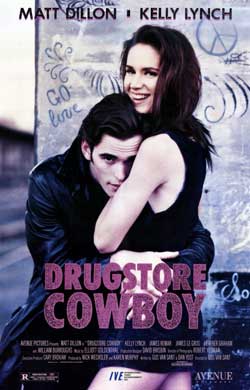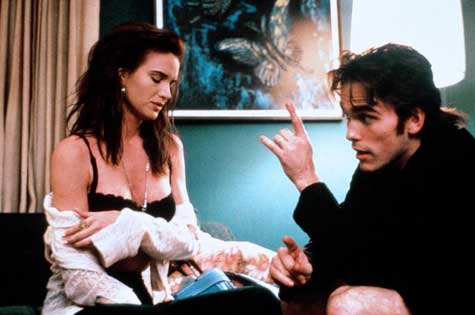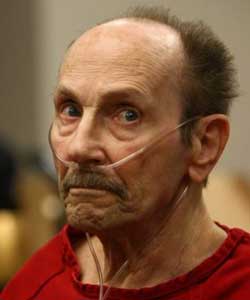
I doubt that many reading this need a detailed description of Drugstore Cowboy’s plot. We all know it’s a study of the alternative lifestyle led by a team of four intravenous drug users in the Pacific Northwest in the early 1970s. It was the second feature film directed by Gus Van Sant, and really his breakthrough. It is based on the then unpublished autobiographical novel by career druggie and criminal James Fogle, who died in 2012 and was a study in himself (one this writer plans to undertake). It stars Matt Dillon who puts on an absolute tour-de-force in portraying Bob Hughes, the leader of the junkie team. Van Sant, his screenwriting partner Daniel Yost, Dillon, and supporting actor Max Perlich all were nominated for and/or won awards handed out by the likes of the L.A. Film Critics Association and the National Society of Film Critics. In my opinion, they should have won Oscars.

There are so many laudatory aspects of this movie that I’m at a loss in knowing where to begin in praising it. There’s Dillon’s commanding performance, which I’ve mentioned. There are the adrenaline rush-making scenes that follow Hughes and his crew as they rob pharmacies and hospitals in search of the goods to make up their next fix. There’s Dali-worthy trippy segments, when we view Hughes’s hallucinatory visions after he’s taken injections of junk. There’s William S. Burroughs’s presence, which could have been just some token junkie hipster credibility fodder but adds an entertaining character to the story. There’s laughably insane parts, like when Hughes spouts off on his superstition-infused worldview, which could only make sense to himself and other druggies. There’s saddening bits, such as when Hughes and his girlfriend (expertly played by Kelly Lynch) drop in on Hughes’s neurotic, God-fearing mother (portrayed by Grace Zabriskie, whom many might know from her similar role as Laura Palmer’s mother on Twin Peaks.) There’s the moving segment wherein Hughes gets spooked off of the lifestyle and aims to go straight. The film has an excellent soundtrack, and the songs add something to the scenes they play over, rather than just being a case of the director showing off what’s in his record collection. There’s kitschy aspects, such as the groovy clothing worn by Dillon and co-star James Le Gros – threads indie boys of today would drool over – but the film never stoops to being period-piece novelty. I could go on.
Drugstore Cowboy is a hipster’s movie that never labors at being hip. It goes inside the world of a few desperate people who have taken an escape route from the workaday world, only to become beholden to forces that most would find more daunting than the challenges we face in doing what it takes to get by and pay the bills. The story is as believable as it is wild. The film holds up to repeated viewings. My college instructor could have shown it to us just after giving the talk on movies about people who step outside the bounds of “normal” society and attempt to exist in a way of life that goes against the grain of the rest of the world.

Brian Greene's short stories, personal essays, and writings on books, music, and film have appeared in more than 20 different publications since 2008. His articles on crime fiction have also been published by Crime Time, Paperback Parade, Noir Originals, and Mulholland Books. Brian lives in Durham, NC with his wife Abby, their daughters Violet and Melody, their cat Rita Lee, and too many books. Follow Brian on Twitter @brianjoebrain.
See all posts by Brian Greene for Criminal Element.

Drugstore Cowboy offers a unique perspective on why it is hard for drug addicts to stop using drugs, and why drug dependence treatment so often fails. What do your think the film has to say on these issues?